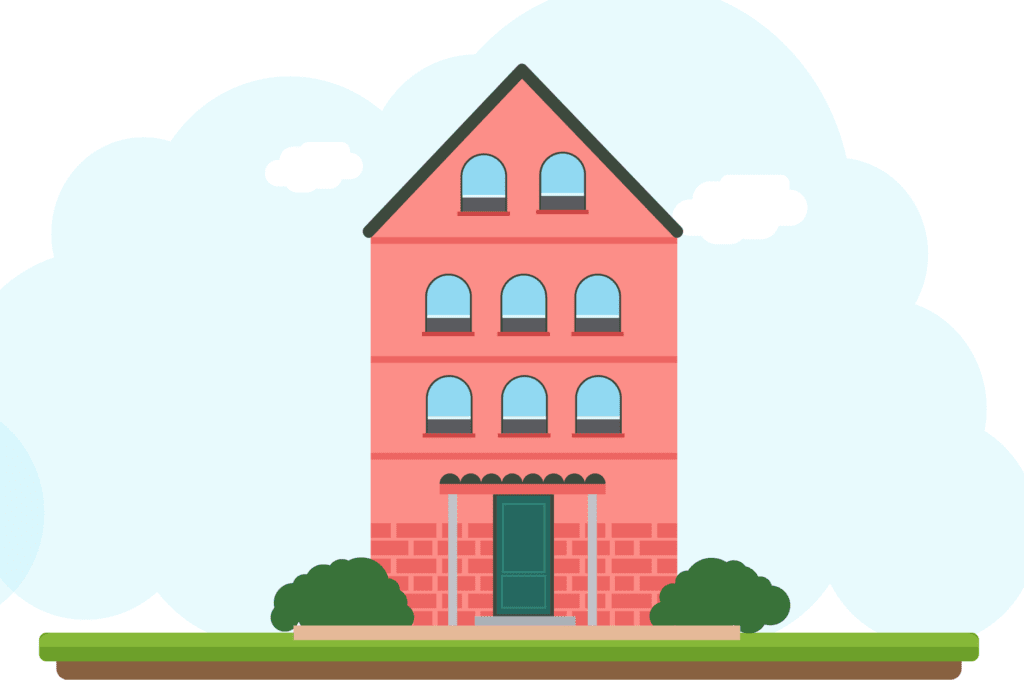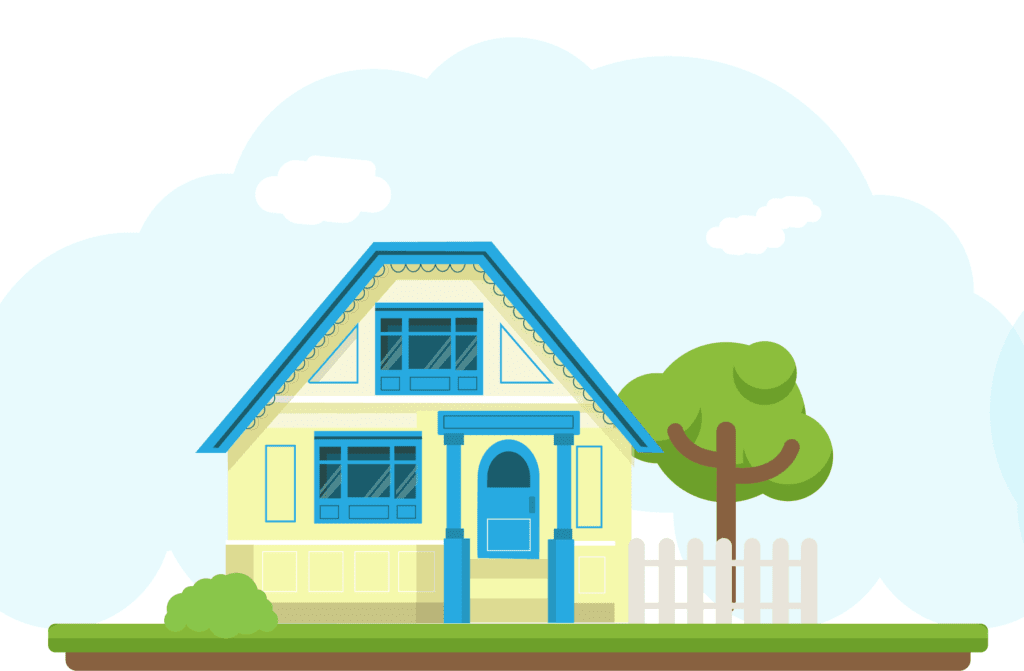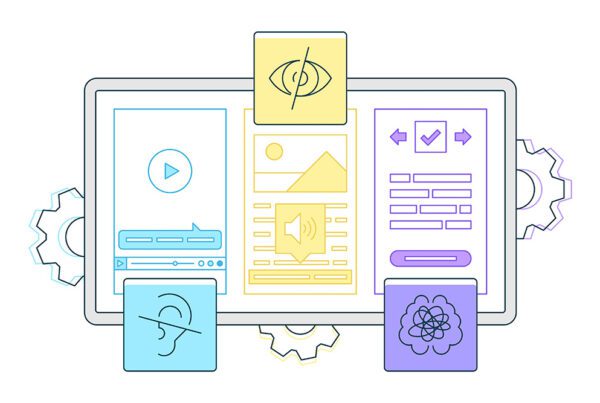Determining the difference between a good, bad, or great website platform can be difficult. The digital world can feel abstract and intangible, particularly if you’re new to web design!
Think of selecting a website platform like finding a place to live. When purchasing a website, after all, you are getting a place to live in the digital landscape.
There are several non-negotiables you should have. Your home must have a roof, ceiling, floor, bathrooms, kitchen, living area, and a place to put a bed. Beyond that, however, your home (your website) should be selected based on your personal tastes, your budget, and your expectations for longevity and maintenance.
So let’s do what every homebuyer does and create a list of pros and cons to establish your non-negotiables.
Squarespace & Wix Website Builders: The Apartment

These drag-and-drop website platforms have risen in popularity over the last few years. They do a good job of giving you the basic rooms you need for a functional space and making it as easy as possible to get moved in. You can change out some paint colors and set up your own furniture, but you won’t have an advisor helping you make the most out of your space. For some companies, however, this is the perfect first step. Let’s look at the pros and cons list:
Pros:
- Gives your company a web presence. You have a place to live, an address to go to.
- Inexpensive monthly hosting costs. You are renting, not owning.
- Allows for some customization. You can paint the walls and use your own furniture.
- Pre-built templates follow the latest design trends. You have a brand-new, modern-looking apartment.
Cons:
- No guidance from an expert on what content needs to go where. You don’t have an interior decorator.
- Time-consuming for you to set up, even as the easiest website builder. There’s no movers or painters, just you.
- Not a ton of customization allowed. You have a pre-built layout and you’re unable to switch out materials like carpet or counters–what you see is what you get!
- No one maintains your website. If you spill red wine on the carpet, no more security deposit!
- You don’t own the website. You can’t move your apartment if your landlord sucks.
Note: To add clarity to the final analogy above. You own the content on your site, but not the proprietary code that powers your Squarespace site. To “move” your website you would need to pack everything up and recreate it somewhere else. You may still have your furniture (i.e. your site content) but any painting or upgrades you did to your space would stay behind. You would, essentially, be building from scratch.
WordPress: The New Construction

These website platforms are comparable to going into a new neighborhood and getting to pick from pre-existing blueprints. The foundation and structure are the same from house to house — tried, true, and secure. There are, however, many options within each blueprint to make this house completely your own (hardwoods vs carpet, granite vs marble, shower vs tub vs tub shower).
While the square footage may be set, the layout of the house can be customized, and, with a team of experts, you can determine what is best for your needs (for websites, what is the best user experience as they visit your home). There are some limitations: for instance, the builder might have certain materials they offer instead of others, but these houses are durable and customizable, with just enough predictability to make home repair easier to do.
When you consider these websites you should consider the following pros and cons.
Pros:
- Built on a secure, popular website builder—WordPress comprises 45.8% of all websites and hosts big name websites like the New York Times and Disney. You have a solid house blueprint based on best practices and trusted by some of the biggest names out there.
- Easy-to-use Content Management System makes site updates easy and convenient. If you want to add on to your house, you have that power!
- Utilizes the expertise of third-party plugins to create experiences like a custom-built website without the high expense. You can choose from the various refrigerator options at Lowe’s versus having a refrigerator custom built into the cabinets that you can’t change.
- You own this site, so you can package it up and take it to another host/agency and continue to use the site without issues. You have the keys, and if HOA sucks you put your house on a truck and drive it away.
- There are agencies that help build these sites and can help you get the most out of your site to reach your business goals. Your builders walk you through your options, discussing the best solution for you and your home.
- These website platforms can look and feel custom. With a larger budget, you can pay for all of the upgrades and hire a subcontractor to make your house look totally unique.
Cons:
- There are some limitations to functionality — specific software integrations may require a custom coded site to operate. You won’t be able to take a vinyl house blueprint and replace the vinyl with stone, the structure just won’t support it.
- Risk of reliance on third-party developers. Some subcontractors are great and others aren’t.
Without guidance, these sites can look horrible and not represent your company well. You can buy a log house package where they ship you all of the materials, but if you don’t know how to put it together, it could get ugly.
The Custom-Built Website: The Chateau

For this, we are talking about Biltmore, Chateau Elan, Buckingham Palace, or simply a custom-built house like no other. Every detail is meticulously combed through and with enough money, your wildest dreams can come true. You will need a team of experts to walk you through how to make your vision a reality to make sure it is the best experience for your guests.
Pros:
- Get exactly what you want from your website: both what your customers see when they visit your site and what you see when you log in. Every. Single. Detail. of your home will be created to your specifications.
- No other website like it. No other house like it.
Cons:
- Typically a longer process than the two previous platforms. The land has to be graded and materials imported.
- Usually on a proprietary Content Management System or not on one at all…meaning that if you want to leave the agency that built your website, you will likely need to create a whole new site. That house will never be moved.
- Most expensive option. Most expensive option.
- Not thoroughly tested and open to the potential of never-before-seen complications. This is the first time this kind of house has been built, meaning there may be some long-lasting errors that have to be constantly maintained.
Lack of any community support and community knowledge. You’re the only owner with this particular house. Googling “How to fix my custom built sink?” won’t provide any answers.
DIY vs Freelancer vs Agency: Who is Building Your House
Now that you have created a pro and con list about which type of house you want, and have a good idea of what is and is not negotiable, you have to decide who you want to build your house. You can have the finest materials, but if those materials are put together by the wrong hands…it can be a nightmare. Let’s review our options for who can put together a website for you.
You: Build Your Own Log Home Kit
How hard can it be, right? With Squarespace and Wix boasting the ease of their drag-and-drop website builders, this seems like a legitimate way to create a web presence for your business and, if you’ve dabbled in photography or design, this can be a great place to start.
Pros:
- You have complete control of what content goes on the website. You can pick out the type of wood your log house is made out of.
- No hard costs associated with paying an Agency/Freelancer to build it. No paid labor to build the house.
- Start with templates that guide you on how to build your website. You have blueprints and guides to put the log house together.
Cons:
- Your time is valuable and you can waste precious time teaching yourself how to optimize your website. If your house could take twice as long to build as you teach yourself contracting basics.
- Your website will look like a lot of other websites unless you spend a significant amount of time customizing your content. Your log house will look like all the other DIY log houses in the catalog.
- You will be maintaining your website should anything break. If you’ve got a leaky roof, you get to fix it.
You don’t own the website after putting this much work into it. As stated earlier, you own the content, but not the proprietary code that powers your Squarespace site. You spent a lot of time and money decorating an apartment that you don’t own.
Freelancer: Sole Contractor/Licensed Builder
You aren’t that handy, but you have heard good things about this local contractor that can put a house together with the highest quality. You have examples of his work and they seem like really great houses. Hiring someone with some expertise is definitely an advantage over doing it yourself.
Pros:
- You have a go-to person regarding your website. You have a dedicated handyman!
- They bring years of experience to your website project and a different perspective than the one you have. You’ve hired someone with a skillset suited to the build.
- If something goes wrong, they may be available to help fix it. They have past experiences to draw upon.
- They are less expensive than an agency team. Your handyman’s pricing won’t be the same as a full construction crew.
Cons:
- Only one mind helping you set the strategy for your company’s web presence. You’ll have less expertise on each unique part of your house, like the electric and plumbing.
- Usually project-oriented, meaning freelancers want to go from one new build to the next. Often this results in a lack of support for websites they built in the past, as it isn’t that profitable for them to provide continual maintenance. Your handyman might be a builder, but may not offer maintenance.
No guarantee you’ll be able to get a hold of a freelancer when you need them. Your handyman might get tied up with another job and not get back to you if something breaks in your house.
Agency: Home Building Company
The final way you can get a house built is to have a reputable company that has numerous examples of the quality houses they have built and made it an incredible process for the homebuyer along the way. This is how most people get houses built because of the incredible investment made in building a home, they want a dedicated team of people to make their home what they want, and advise them throughout the process.
Pros:
- Team of people contributing to the strategy of the website to create the best possible result. Someone focusing on the user experience, someone focusing on the design, and someone focusing on the quality of the content makes a much better website in the end. The plumber, the electrician, the contractor, the floor specialist, and the foundation specialist all play a key part in building a great house.
- Can get in touch with someone at the agency should something go wrong. You have a contracting team that you can contact, not just one person.
- Typically offers support to keep your website up and running and at a high performance. This company offers ongoing home maintenance services.
Cons:
- Not all agencies are created equal, and it can be difficult to determine who is the right fit for you to work with. You may like your contracting crew and you may not.
Typically, this is the more expensive option, but the price can vary wildly based on the type of website platform you are building on and the technical requirements of your site. A contracting company will have a large quote based on the technical requirements of your unique build.
Other Things to Consider:
Hosting: The Neighborhood
Where your site lives can be a huge liability if it isn’t in the right neighborhood. If you pay for a completely custom website, but put it in a less-than-stellar area of town, then the performance and security of your website could be compromised. Make sure you know where your website is going to live before purchasing one.
Other Questions to Ask
Not only is it important to know where your site is hosted, but also what your agency or provider offers while working with them during the project and after it is live.
- How much is hosting?
- Are they checking for security updates?
- Is support included?
- What are their support response times?
- How often are their websites offline?
- Are they reporting analytics to you in a way that tells you if your web presence is successful?
- Are they tracking whether people are engaging with your website in a way that produces leads for you?
- Are they sitting down with you to review analytics to find out how to get more out of your website?
- Are they renewing your domain name (web address) yearly for you?
Making the Choice
Ultimately, you have to decide which website platform is right for your company based on your specific needs. Regardless of which website building route you decide to take, there are basics that it must have (like the roof, ceiling, and floor). Beyond that, you’re searching for a solution that will support your organization’s growth and give you the best chance of success as you plan for the future.



